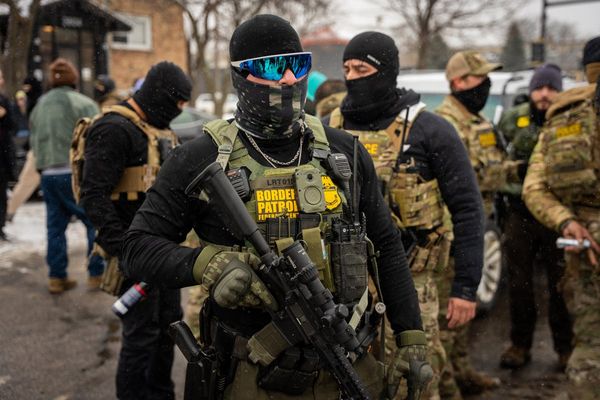
Ongoing atrocities cast a shadow on the first anniversary of the ceasefire that officially ended hostilities in Ethiopia's Tigray region, according to Human Rights Watch. One year into the peace deal, there are multiple reports of abuses in Tigray as well as conflicts in other regions.
A peace deal to end the fighting in Tigray was brokered in South Africa by the African Union on 2 November last year.
The guns have been silenced, and the northern region of six million has begun the huge task of rebuilding.
The war, which also drew in Eritrean forces, inflicted terrible damage on the region. Ethiopian Finance Minister Ahmed Shide recently estimated the cost of reconstruction at $20 billion.
"I am surprised how fast the situation changed in one year. We are still far from pre-war, but it improved quite a bit," one member of a non-governmental organisation active in Tigray, who requested anonymity, told French news agency AFP.
But though access to key services including banking, electricity and internet has resumed in some parts of Tigray over the past year, one million people remain displaced across the region, according to the International Organisation for Migration.
Serious human rights abuses have gone unpunished, and clashes have since erupted in other parts of the country, notably in the Amhara region south of Tigray.
One year after the end of the Tigray war, peace remains far off in Ethiopia. And justice has not been served.

Impunity in Tigray
The two-year conflict between forces loyal to Prime Minister Abiy Ahmed's government and the Tigray People's Liberation Front killed half a million people, according to the United States, with all parties accused of grave rights abuses.
Fighting and abuses persist in northern Ethiopia despite the ceasefire, according to Human Rights Watch.
"While the Ethiopian government and its international partners tout the tremendous progress made in the past year, civilians in conflict areas are still bearing the brunt of atrocities," said Laetitia Bader, HRW's deputy Africa director, on Thursday.
"Fighting has intensified in other regions of the country, as past violators repeat patterns of abuses without consequences."
Victims of #Ethiopia's devastating conflict feel abandoned by int'l community. With ongoing abuses and risk of further atrocity crimes, #UN group of experts on #Ethiopia make clear that justice & ongoing int'l scrutiny are key https://t.co/zFBzxSBF9t
— Laetitia Bader (@LaetitiaBader) October 26, 2023
The rights group said Eritrean forces, which backed Abiy during the conflict and remain in border areas of Tigray, had "carried out killings, sexual violence, abductions, and pillage, and obstructed humanitarian assistance, and impeded the work of AU monitors" following the signing of the peace deal.
It also accused the authorities and Amhara forces of "ethnic cleansing" and forcible expulsion of Tigrayans in the volatile Western Zone of Tigray.
HRW called on the UN and other countries to maintain pressure on Ethiopia to protect civilians and punish those responsible.
"Ethiopia's many victims deserve a future that is not marred by recurring abuses and impunity," Bader said.
Amhara conflict
The latest report by the UN's International Commission of Human Rights Experts on Ethiopia said the nation's government was failing to protect its citizens from "grave and ongoing" human rights abuses being committed by militias and Eritrean troops.
Fighting between the Ethiopian military and militias known as Fano has also intensified in in the Amhara region in recent months, accompanied by reports of hundreds of civilian casualties, mass arrests of Amharas and damage to civilian infrastructure.
The authorities have resorted to familiar repressive tactics to limit access to real-time information and independent scrutiny, including blocking access to internet services in the region in August.
The federal government's decision in early August to impose a six-month state of emergency in Amhara has also raised fears, with the UN-backed international human rights commission warning of an increase in abuses in the region.
It is difficult to verify the situation on the ground in either Amhara or Tigray as media access to both regions is heavily restricted.
'Fracturing' effect
Other regions too are becoming hotspots, often along ethnic lines.
Multiple simultaneous but unrelated conflicts are "ongoing in the country at any given time", the Armed Conflict Location and Event Data Project (ACLED) monitor reported in September.
Across swathes of Ethiopia's largest and most populous region, Oromia, armed groups have been waging an escalating campaign of violence since 2018, including ethnic massacres.
"No Ethiopian region is truly stable today," said Patrick Ferras, president of the France-based think tank Stratégies Africaines. Speaking to AFP, he warned of hardening lines around ethnic identity.
"All these security conflicts, particularly in Oromia and Amhara, are only accelerating the fracturing of Ethiopia, which will probably not fracture completely, but which will remain a difficult country to govern."
(with newswires)







